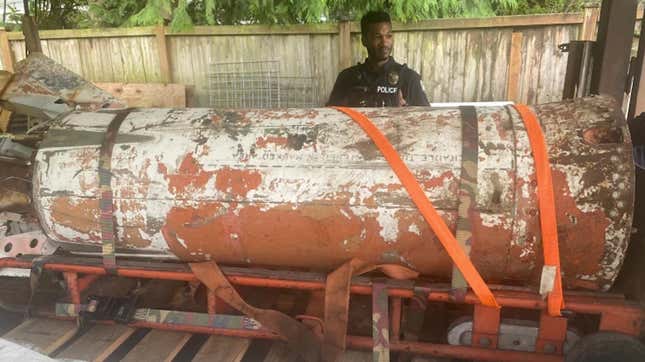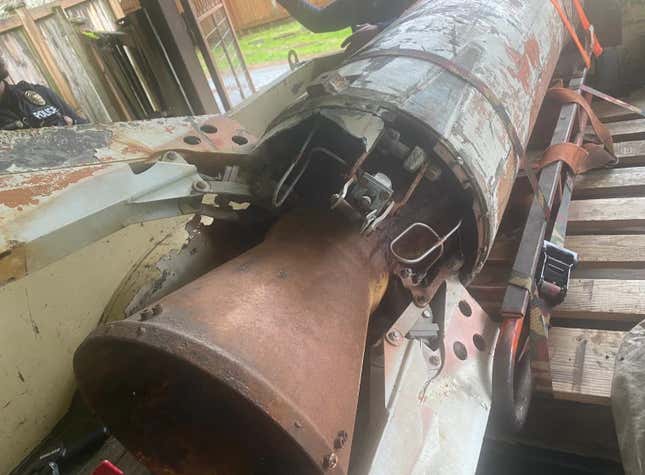
You know the old saying: “One man’s trash is another man’s nuclear warhead.” Of course, you do, and that’s why it’ll come as no surprise that elements of a very large, mostly intact nuclear missile — including its goddamn warhead — were found in the garage of a Washington State resident.
The Bellevue Police Department’s bomb squad was called to the garage of a deceased man after an Air Force museum in Dayton, Ohio contacted them on January 31, according to a post on the Bellevue Police Department’s website. The museum had received a call from the man who was looking after the property since its owner had died, and he was looking to donate the warhead to the museum. It was apparently originally purchased at an estate sale.

Anyway, police were given access to the reported missile and were able to inspect it, learning that it is a Douglas AIR-2 Genie, according to the post. For those who don’t know military things, it’s an air-to-air rocket that is designed to carry a 1.5-kiloton nuclear warhead. Yeah. This thing is legit. Don’t worry though. There’s no warhead attached. Bomb squad members also confirmed that the rocket was indeed inert and had no rocket fuel — that means it is “an artifact with no explosive hazard,” police said.
All’s well that ends well, though, because the rocket is inert and the military didn’t request it back. That means it was left with the neighbor to be restored for display in a museum. We’re not sure right now if the missile will indeed end up at the Air Force museum. If they don’t want it, Jalopnik will gladly take it.
Here’s a little history of the Douglas AIR-2 Genie missile, according to the New York Times:
First put into operation in 1957, the Genie was the world’s first nuclear-armed rocket designed to destroy aircraft targets, and was the most powerful interceptor missile deployed by the U.S. Air Force, according to Boeing.
In 1954, Douglas Aircraft began work on “a small unguided nuclear-armed air-to-air missile,” according to Boeing. Douglas Aircraft built more than 1,000 Genie rockets before discontinuing production in 1962.

